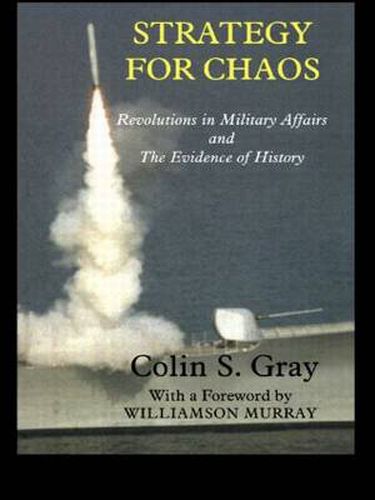Readings Newsletter
Become a Readings Member to make your shopping experience even easier.
Sign in or sign up for free!
You’re not far away from qualifying for FREE standard shipping within Australia
You’ve qualified for FREE standard shipping within Australia
The cart is loading…






In this volume, Professor Colin Gray develops and applies the theory and scholarship on the allegedly historical practice of the Revolution in Military Affairs (RMA), in order to improve our comprehension of how and why strategy works . The author explores the RMA hypothesis both theoretically and historically. The book argues that the conduct of an RMA has to be examined as a form of strategic behaviour, which means that, of necessity, it must work as strategy works. The great RMA debate of the 1990s is reviewed empathetically, though sceptically, by the author, with every major school of thought allowed its day in court. The author presents three historical RMAs as case studies for his argument: those arguably revealed in the wars of the French Revolution and Napoleon; in World War I; and in the nuclear age. The focus of his analysis is how these grand RMAs functioned strategically. The conclusions that he draws from these empirical exercises are then applied to help us understand what, indeed, is - and what is not - happening with the much vaunted information-technology-led RMA of today. The popular idea that, because war occurs in the realm of chance, strategy is characteristically chaotic is considered and - on balance - rejected. Rather, the author concludes, a somewhat chaotic unpredictability about the consequences of strategic behaviour is a defining characteristic of, but not a literally fatal impediment to, strategy.
$9.00 standard shipping within Australia
FREE standard shipping within Australia for orders over $100.00
Express & International shipping calculated at checkout
In this volume, Professor Colin Gray develops and applies the theory and scholarship on the allegedly historical practice of the Revolution in Military Affairs (RMA), in order to improve our comprehension of how and why strategy works . The author explores the RMA hypothesis both theoretically and historically. The book argues that the conduct of an RMA has to be examined as a form of strategic behaviour, which means that, of necessity, it must work as strategy works. The great RMA debate of the 1990s is reviewed empathetically, though sceptically, by the author, with every major school of thought allowed its day in court. The author presents three historical RMAs as case studies for his argument: those arguably revealed in the wars of the French Revolution and Napoleon; in World War I; and in the nuclear age. The focus of his analysis is how these grand RMAs functioned strategically. The conclusions that he draws from these empirical exercises are then applied to help us understand what, indeed, is - and what is not - happening with the much vaunted information-technology-led RMA of today. The popular idea that, because war occurs in the realm of chance, strategy is characteristically chaotic is considered and - on balance - rejected. Rather, the author concludes, a somewhat chaotic unpredictability about the consequences of strategic behaviour is a defining characteristic of, but not a literally fatal impediment to, strategy.